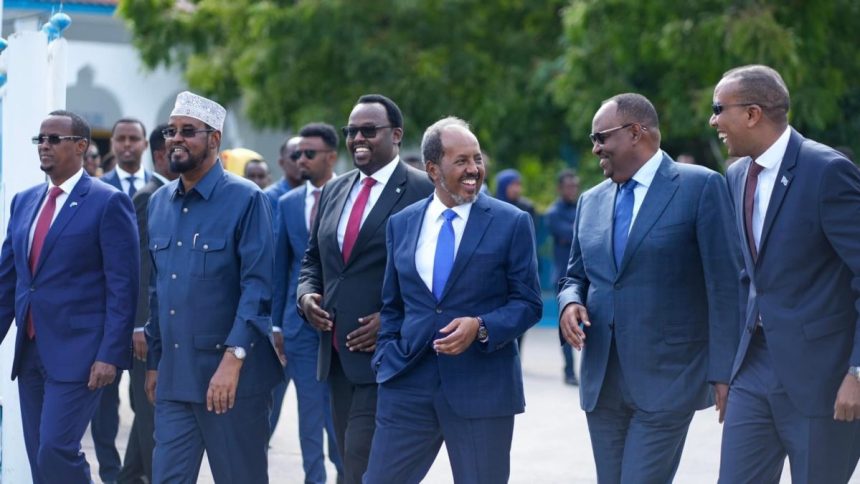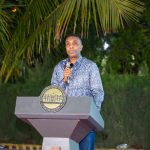Historical Context of Somali Elections
Somalia’s journey toward establishing a democratic electoral system has been long and fraught with challenges. The country’s first general election took place in 1964, shortly after gaining independence in 1960. However, the political landscape shifted dramatically following the 1969 coup d’état led by General Siad Barre, which halted the democratic process for decades.
The collapse of the Barre regime in 1991 led to years of civil war and the disintegration of the central government. It wasn’t until the establishment of the Transitional National Government (TNG) in 2000, followed by the Federal Government of Somalia (FGS) in 2012, that efforts to rebuild the state began. Despite these efforts, the last general election was held 67 years ago, with subsequent elections being indirect and controlled by clan elders rather than through a one-person-one-vote (1P1V) system. The Hassan-Hamze administration now faces the daunting task of restoring general elections and achieving 1P1V by 2027.
Security and Financial Challenges
Security concerns remain one of the most significant obstacles to holding a general election in Somalia. Al-Shabaab continues to pose a serious threat, especially in rural areas, undermining the possibility of conducting free and fair elections across the country. The government must secure polling stations and ensure the safety of voters, candidates, and election officials, particularly in areas where Al-Shabaab is active.
Financial constraints also present a major challenge. Organizing a nationwide election is a costly endeavor, requiring substantial resources for voter registration, logistics, and security. Given Somalia’s limited fiscal capacity, the government will need significant international support to finance the electoral process.
The Role of Banadir Region and Pre-Election Testing
Given these challenges, the Banadir Region, which includes the capital Mogadishu, is the most secure and politically stable area in Somalia, making it an ideal starting point for electoral activities. The government can begin by conducting pre-election tests in Banadir, such as holding elections for the consular of the 17 districts. This would provide valuable insights into the logistical and security challenges of organizing elections while also building public confidence in the process.
If successful, this approach could be expanded to other relatively secure regions, such as Hirshabelle and Galmudug, as part of a phased strategy toward nationwide elections.
The Challenges in Jubbaland and Southwest States
While some regions may be prepared to move forward with elections, Jubbaland and Southwest States present significant challenges. Both states have interim capitals—Kismayo in Jubbaland and Baidoa in Southwest—which remain contested and insecure. Al-Shabaab’s strong presence in these areas, particularly in Buale (Jubbaland) and parts of Southwest State, complicates the prospect of holding elections. Restoring control over these areas will require more than military action; comprehensive political and social strategies are needed to stabilize these regions and make them viable for electoral participation.
Puntland’s Experience with 1P1V Elections
Puntland provides a notable example of progress toward implementing a 1P1V system. On May 25, 2023, Puntland held its first direct election in 30 districts, marking a significant milestone in the region’s democratic development. The results, announced by the Puntland Electoral Commission, showed that three political organizations dominated the elections: Kaah, led by Puntland President Said Abdullahi Deni; Mideye, led by Assad Diyano; and Sincad, led by Ahmed Jabiye.
Despite this achievement, Puntland’s electoral process was not without its challenges. The Electoral Commission has acknowledged ongoing issues, but they have expressed a commitment to resolving these problems. They prepare to conduct further elections once there is consensus among the relevant stakeholders. Puntland’s experience demonstrates that, while difficult, progress toward 1P1V elections is possible even in Somalia’s complex political environment.
Learning from Puntland and Somaliland
The experiences of Puntland and Somaliland offer valuable lessons for the Hassan-Hamze government. Both regions have successfully navigated the challenges of holding elections in Somalia’s unique context. Puntland’s recent 1P1V election and Somaliland’s consistent electoral processes underscore the importance of voter registration, security measures, and transparent electoral procedures.
Somaliland’s use of biometric voter registration, for example, has helped reduce fraud and build trust in the electoral process. Adopting similar measures in other regions could help build momentum toward a nationwide election.
The Path Forward: Pre-Election Activities and Political Party Development
Before moving forward with a general election, the Hassan-Hamze administration must focus on pre-election activities, including voter registration, public awareness campaigns, and the establishment of polling infrastructure. Accelerating these activities will be critical to ensuring a credible election in 2027.
Moreover, the development and registration of political parties are essential for fostering political competition and providing voters with clear choices. However, the government must also be prepared to manage potential political conflicts, as the emergence of strong parties may lead to intense rivalries.
Voter education is another crucial area that requires attention. Given the security and financial constraints, voter education campaigns should be strategic and targeted, leveraging media, civil society organizations, and local leaders to reach as many people as possible.
Conclusion: Charting a Respectable Path Forward
The Hassan-Hamze government faces a formidable challenge in reinstating general elections after 67 years. Success will require a combination of careful planning, robust security measures, and significant financial investment. By starting in secure regions like Banadir and drawing on the lessons from Puntland and Somaliland, the government can build the foundations for a credible 1P1V election in 2027.
Addressing the challenges in Jubbaland and Southwest States, particularly their contested capitals, will be crucial for ensuring nationwide participation in the electoral process. With the right strategies in place, the Hassan-Hamze administration can earn the respect of the Somali people and the international community, demonstrating its commitment to restoring democratic governance in Somalia.
Roble Idle – MA International Peace Studies, UPeace, UN Mandated





